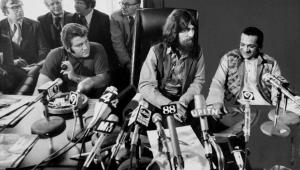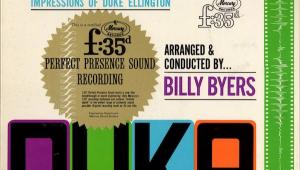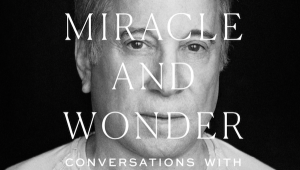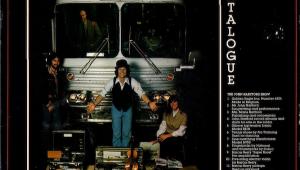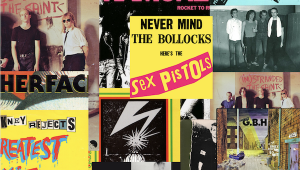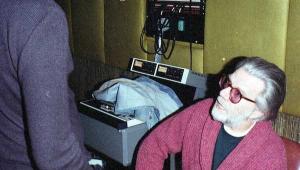The Musicangle Interview: Producer Rick Rubin Part 2
MF: Just to change the subject, do you know who P.D. Ouspensky is?
RR: Yes.
MF: Did you read “In Search of the Miraculous?”
RR: Yes.
MF: That book changed my life. I don’t live it but he managed to merge mysticism with science and create a music-based universe.
RR: Have you ever listened to the Gurdjieff piano pieces?
MF: Keith Jarrett recorded some, and Thomas D. Hartmann?
RR: Yes. They are so beautiful. I listen to those quite a lot.
MF: Gurdjieff was a mystic and a rascal. I went to a Gurdjieff lecture when I was living in Boston back in 1969 or 1970 and I’d just started reading those books and he was a rascal and he was fun and he wasn’t sanctimonious and the people running this lecture were so self-righteous and smug…if this guy could have come back and seen this, he would have been sick! I just walked out…well now we’re getting into things I’m not sure people are that interested in reading about. The big record companies: do you think they’re going to survive?
RR: I don’t know. Probably so, because they own so much content and I think in this changeover the name artists will really benefit from the change because if you have everything available to you at all times, something that’s familiar, if you have the unlimited universe of music before you, you might tend to grab things from artists that you love that you might not have.
MF: But you don’t see hard goods going away the way some people have predicted.
RR: Well eventually, I don’t know. Not in the near future.
MF: There are still people who want “the thing.”
RR: Of course.
MF: And if it’s packaged right, then it’s a thing worth having. The Digipak™ is nice. It was these plastic things (jewel boxes), with the little insert, I said at the time “people are going to stop wanting this.” It was obvious: they’re making crap.
RR: Right and artwork is reduced to nothing.
MF: The Mars Volta, until I got the vinyl, I looked at that on CD for I don’t know how many months and when I got the LP I saw that little kid standing in the corner for the first time.
RR: When you view the artwork through plastic you don’t have the visceral experience of being with the picture.
MF: Do you think there are artists today with the gravity of a Johnny Cash? Or who can achieve that level of gravity. Is it that I’m getting old? I see artists that I appreciate but I don’t know if I see—even actors and television personalities—I don’t see anyone with the gravity of some of the older ones.
RR: I think there are some that are capable of it whether they maintain that course. If Johnny’s career would have ended after the Sun records we wouldn’t think much of him now, even though those may be his best records. Longevity plays a role. Say Neil Young. He was great in the ‘60’s but he’s still amazing and he’s more important because of that. We can think of other artists from the ‘60’s who were as great then who never really continued on and it’s really few and far between. It’s odd for grown up artists who’ve made a lot of albums to make great albums. You don’t see it so much. I remember the first Tom Petty album I did was called Wildflowers and I thought it was good but I didn’t think it was amazing at the time. I really love it now, but at the time I thought “this is good,” and it was really successful and I was surprised by how successful it was but I realized, I thought of all of his contemporaries and it was much better than anything his contemporaries were doing. Even the late ‘60’s artists at that time—Paul Simon wasn’t making great records—the great artists, Paul Simon, Paul McCartney, their new albums weren’t so great. For grown people Petty’s record was a milestone album in that respect because his contemporaries weren’t doing anything that was par with it. Now it may not have the same energy of a first time band, first album putting their whole twenty five years into the songs. It’s hard to do that with grown artists. That’s what I’m finding so impressive with U2. I feel that their last album for me, may be the best album they ever made.
MF:Which was that?
RR: All That You Left Behind. That whole album. There are so many good songs. The ration of good songs to the number of songs on the album is higher than on any album they’ve done.
MF: I saw them on their last tour and the adulation from the audience was messianic. I’ve seen a lot of concerts but I’ve never seen that.
RR: People crying…
MF: Bono was like a diety. And he pulled it off without pretense. Certainly he came across as self-important but you have to be self-important to do that kind of stuff I don’t care what anybody says! When you got involved with Johnny Cash you saw an artist the you loved that you thought had another go round?
RR: I just thought that he was clearly one of the greatest artists of all time and wasn’t doing his best work and it seemed like with the right support he could be doing his best work and that would be great.
MF: And you contacted him? And was he receptive? Did he know who you were?
RR: I don’t think he knew who I was. He was receptive I think because I think he was surprised that anyone cared at that point.
MF: Isn’t that sad?
RR: Terrible.
MF: And he listened to you?
RR: Yea.
MF: You told him what you thought he had to do and he listened…
RR: It’s not so much that I told him what to do. We collaborated. I would inspire him to bring out the best in him and refocus. We just talked about a few minutes ago, the idea of grown up artists not making their best albums. I think one of the reasons that happens is, when you’re making your first or second album it’s a really big deal. It’s the most important thing in your life. It was the dream for most of your life and you’re finally getting to do it. When you’ve made twenty albums you have a different relationship to it. It can be just another album. An artist’s life gets on a certain rhythm where you tour for this long, you’re off for this long, you record an album, you go back out on the road and there’s this kind of cycle. Once that cycle is firmly in place, it kind of takes over and if you need to take a year to write the songs to make your album to be all that it is, well that’s not in the cycle—or two years—whatever it is.
MF: Is it a product kind of thing where you have to put something out?
RR: I think it’s a human nature thing, just when you get into a certain pattern, you just stay on the pattern.
MF: Hopefully at least, because if you fall completely off of it, nothing happens.
RR: Exactly! So I think that this rhythm of what it is to be an artist takes over and it’s not necessarily conducive to making the best music. So the first thing I had to do with Johnny was re-frame the record making experience back to “we’re going to take as long as it takes, we’re gonna try a lot of different things, we’re in no hurry to ever put out a record, all that matter is that this next record you make is the best record of your life. It’s all that matters. Nothing else matters.” That’s a radical difference for a guy that’s made 100 albums.
MF: During the Columbia years, he churned out a lot of albums.
RR: Yea. And Mercury after that. And again, it was just the cycle. He was on the road for 250 dates a year, and we have two weeks off so we’re going to record an album, whether we’re ready to or not.
MF: How difficult was it to get him to break that cycle and to become creative and to get the first record done?
RR: It just took a little time, and it took trust on his part because it definitely went against his programming for the last thirty years. But once we made the breakthrough and once he heard it, and then once it came out and people liked it as much as they did, he knew everything was different from now on.
MF: Did that change him?
RR: Definitely. And he became obsessed with wanting to do great work as opposed to before, just about continuing on the process and now it was about everything being great and whatever it took.
MF: When Justin Timberlake got up at the Grammys and said ‘this award is really for Johnny Cash,’ or whatever he said, how did you react to that? I mean it was gracious and everything, but wasn’t it a ludicrous moment?
RR: It was really funny. And the whole thing was surreal, Justin Timberlake and Missy Elliot and Eminem and 50 Cent and… Johnny Cash!
MF: But you did that! I mean, you had nothing to do with that, but the part that you did…that must have made you feel really good.
RR: Yea, it was great. Again, I never knew that any of that would ever happen. I knew we could make great music but I had no idea what the acceptance would be.
MF: Whose idea was it to do the Trent Reznor song (“Hurt”)?
RR: That was mine.
MF: That was a brilliant idea and that video….I’m in gym on the treadmill and that comes on VH-1 and you cry every time you see it. The song does that, but when you see it with that video, it’s one of those indelible, amazing creations that will always be that.
RR: I agree.
MF: How was he making that?
RR: I wasn’t there for it but he was laughing and in a great mood. My friend directed it and he said it wasn’t at all like the tone of the piece.
MF: That’s astounding. And no one videotaped the making of it.
RR: I think there’s some footage, hopefully.
MF: When he puts the top of the piano down and moves his hand across it…
RR: Yea. I remember when Mark (Romanak), the director of that told me he said to Johnny “This is the last take so if you really want to do something special this time,” and Johnny just kind of looked at the room of people and said “I hope this isn’t the last take!” And he was making jokes.
MF: And he was directed to move his hands over the top of the piano like that.
RR: Oh yea, that was Mark.
MF: That was a brilliant stroke. And the lighting…
RR: Beautiful. So much of it though comes from the words of the song. The words are so simple and elegantly written and so sad, it’s really a brutal song.







